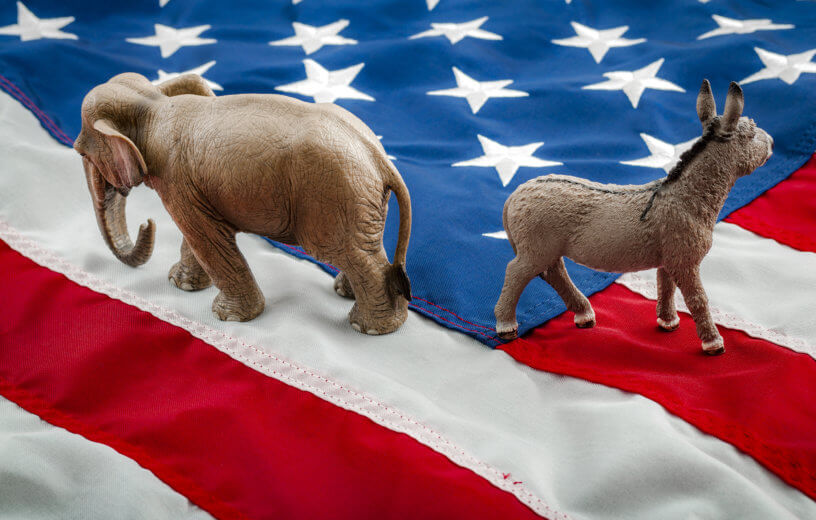EAST LANSING, Mich. — Political and ideological polarization has been plaguing American politics for years, and 2020 is already off to a particularly turbulent start. Surprisingly, research by Michigan State University and the Max Planck Institute for Demographic Research suggests all that disagreement may actually be beneficial. The study finds a partisan, and at times divisive, Congress could be more productive in terms of getting legislation passed than if bipartisanship reigned supreme.
The researchers used new mathematical programming models to examine how U.S. Senators and Representatives work together in coalitions. Placing legislators in groups, or coalitions, allowed the researchers to analyze the inner workings of Congress more thoroughly than just looking into each individual Congresspersons’ political party affiliations would have accomplished.
“We usually think of the Congress as organized around political parties, but we found that it makes more sense to think about coalitions,” says study co-author and MSU associate professor of psychology Zachary Neal in a university release. “Coalitions are often partisan, with their members all coming from the same political party. But, coalitions can be bipartisan too. There are cases of left-leaning coalitions composed mostly of Democrats but that include some Republicans, and some cases of right-leaning coalitions composed mostly of Republicans but that include some Democrats.”
Coalition behavior isn’t as simple as political parties because coalitions are often made up of both Democrats and Republicans. The study’s mathematical models were able to identify coalitions filled with conservatives and liberals that consistently work together to co-sponsor bills.
“Most people think of all Republican legislators working together and all Democratic legislators working together,” says Samin Aref, research area chair in the Laboratory for Digital and Computational Demography at the Max Planck Institute. “We used our new optimization models to identify coalitions and then asked, ‘Does thinking about coalitions tell us more about how Congress works than thinking about parties?’ And for the House of Representatives, it does.”
The research team applied their models to U.S. Congresses from 1979 to 2015, and measured annual levels of polarization and partisanship. They then compared those findings to how many bills were successfully passed each year.
“Congress passes fewer bills each year – you might say they’re getting worse at their most basic task – and some may argue that this is due to polarization,” Neal explains. “However, partisan coalitions have actually helped the work get done in the U.S. House of Representatives. In fact, the House would be even more ineffective at passing bills if it weren’t for the high levels of partisanship.”
Identifying political coalitions may be key to understanding how partisan polarization could affect the 2020 elections and beyond, researchers say. However, they also theorize that partisanship could have mostly short-term benefits because future Congresses can overturn previous legislation.
The study is published in Scientific Reports.
